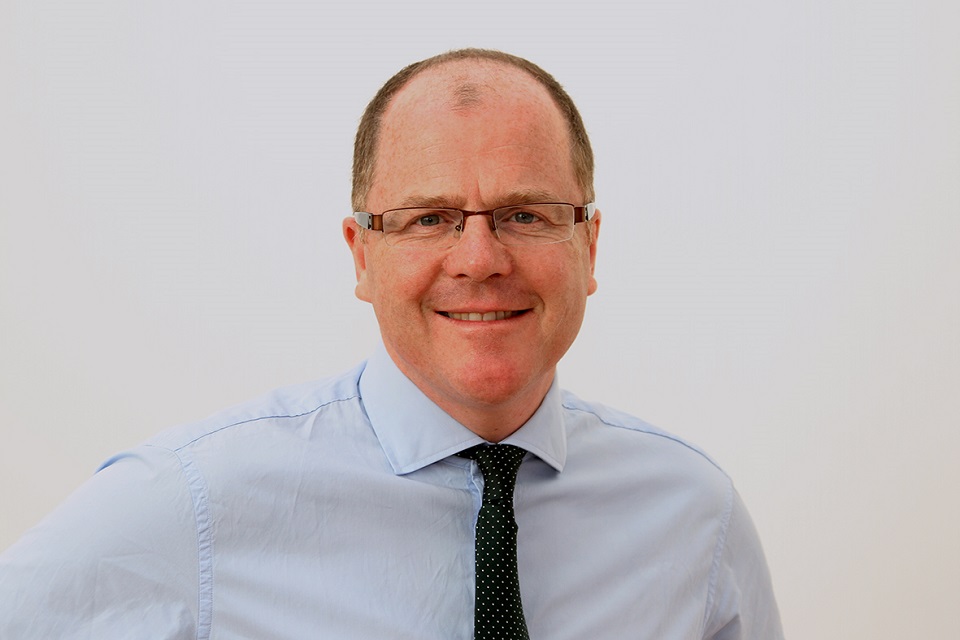George Freeman promoted, leaving Life Science minister role in doubt

George Freeman is to become chair of the prime minister’s policy board, part of an extensive reshuffle by new PM Theresa May.
The Conservative MP for mid-Norfolk, Freeman has served as the minister for Life Science since 2014, a role which was said to be the first of its kind anywhere in the world, focusing directly on the pharmaceutical, biotech, med tech and digital health sectors.
But after almost exactly two years, Freeman is to move on and it now looks likely that the groundbreaking role will be scrapped, with responsibility returning to new ministerial appointments in the Department of Health (DH) and in the Department of Business, Innovation and Skills (BIS).
Freeman's new role was announced at the weekend, and the reshuffle at the DH and BIS is still being finalised.
The news is undoubtedly a disappointment for the pharma and biotech sectors, who looked to Freeman to help champion the sector – his most notable achievement being the commissioning of the Accelerated Access Review (AAR), and end-to-end review aimed at boosting the life science and the NHS.
Freeman, a one-time biotech venture capital fund manager, won many friends and admirers during his time as Life Science minister, but wasn’t in the post long enough to see his plans come to fruition.
This includes the AAR, which has been repeatedly delayed, including by the EU referendum and its aftermath, but is now pencilled in for a launch in September. Another top priority for Freeman was the roll-out of electronic health records on the NHS - but concerns about privacy and consent have seen the care.data scheme scrapped.
One of Freeman’s last acts in the Life science post was to convene a special UK EU steering group to help the life sciences sector through the UK’s exit from the European Union, which is likely to take at 18 months.
The pharma and biotech sectors had campaigned to remain in the EU, and will now want reassurances that their businesses won’t suffer in the long term from the many potential consequences.
Despite being an energetic 'Remain' supporter before the referendum, Freeman has since expressed confidence that the UK can exploit many new opportunities from Brexit. Pharma leaders seem happy to contribute to this positive approach, but will first seek reassurances on fundamentals such as freedom of movement of goods and people, as well as UK-specific questions such as funding and market access for medicines.
David Mowat, MP for Warrington South and Nicola Blackwood, MP for Oxford West & Abingdon and chair of the science and technology select committee, have been named as part of a new ministerial team at the Department of Health.
A tweet by George Freeman earlier today suggested that Mowat and Blackwood would take over his brief for genomics, digital health and the AAR, however no official announcement on this has been made yet.
Great to see @mowat4ws + @nicolablackwood as Ministers at Health covering #Genomics #Digital @AccelAccess etc: real champions of innovation.
— George Freeman (@Freeman_George) 18 July 2016
However it looks likely that no-one will take on his cross-departmental role, and the Life Sciences minister portfolio will be divided up.
Commenting on the news of his departure, UK pharma industry association the ABPI said Freeman had been “a dedicated and experienced Minister advancing the agenda” for the UK life sciences sector.
At a time of great uncertainty for the pharmaceutical industry we are eager to see who will take up the responsibility of progressing the good work that Freeman has started. This should include the continuation of the UK-EU Life Sciences Transition Steering Group to address regulatory and funding issues facing the pharmaceutical and biotech sectors following Britain's decision to leave the European Union, as well as initiatives including the much anticipated Accelerated Access Review which was set up to make the UK the best place in the world to discover, develop and deliver innovative medicines to patients.”











